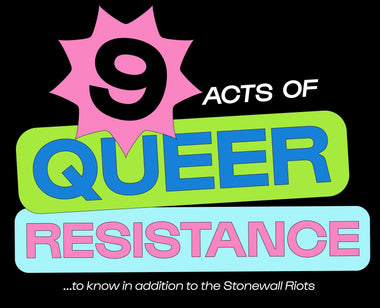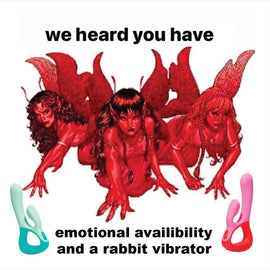How Polyamory Can Improve a Relationship


Well, it’s just a word for "consensual, ethical, and responsible non-monogamy". That is, a poly person will openly engage in (or be open to engaging in) more than one intimate relationship at a time. One might have two girlfriends, or a husband and a boyfriend, or be casually dating multiple people. The scope and scale of what a poly life can look like is too vast to cover here, but if you’re interested in learning about different configurations then check out Tristan Taormino’s seminal book Opening Up or this wonderful column from Autostraddle about how queer women and non-binary people experience polyamory. Plus, the TV show You Me Her (on Netflix) is also a pretty decent portrayal of a three-way relationship or ‘throuple’.
My introduction to polyamory was one of necessity. When I got into my first serious relationship, I realized that I didn’t want to give up the emotional and sexual relationship that I had with one of my friends. Thus, it was agreed that I could continue to sleep with her whenever our paths crossed (we lived in different cities). This suited me because although I loved my partner, there were specific things about them that meant that they just couldn’t be everything that I needed in relation to my emotional and physical desires. I didn’t want to resent my partner for this, it certainly wasn’t their fault! Having someone else to turn to enabled me to feel more secure in my primary partnership, because I wasn’t as upset about the areas in which my partner couldn’t give me what I needed. This was the first wonderful aspect of being poly I experienced.
Polyamory vs. Traditional Romantic Relationships
For me, polyamory hinges on the idea that one person cannot be everything to another, and that trying to force someone to be my everything and vice versa is ultimately frustrating and unhealthy. This is my favorite positive aspect of being poly. It allows us space to admit that no matter how well matched, no two people are perfectly in sync. This outlook deconstructs the heteronormative narrative that tells us that one day we will meet our ‘Mr. Right’ and he (and he alone) will complete us socially, spiritually, emotionally and sexually. With polyamory, we can advocate for our varied needs and wants in sexual and romantic relationships and take the steps necessary to secure them.
Romantic relationships in the traditional sense often carry a lot of weight on their shoulders. That is, people are generally expected to follow the “relationship escalator” model, whereby you date, you make it official, you move in, you get engaged, you get married, you have children. Each step is seen as necessary as time goes on to demonstrate that one is “serious” about the partnership. That’s a whole lot of pressure and is certainly responsible for a lot of rushed decisions and ill-thought out engagements. When divorcing oneself from the idea of what a relationship should look like by being polyamorous, you’re able to interrogate other relationship norms too. This gives you space to think about what you really want from your partnerships. Do you actually love having your own place? Do you even want to have kids (in this economy?!).
Common Mistakes in Polyamorous Relationships
It’s not all sunshine and roses in poly land though (despite what insufferably smug poly people might claim). Toxic relationship behaviors can rear their heads just as easily within polyamory as within monogamy. Men pressuring their girlfriends into trying polyamory because it’s “the more progressive/feminist thing to do” is a big red flag. Treating one’s non- primary partners as disposable or expendable, or roping them into conflicts between you and your primary partner are also big no nos.
Furthermore, being poly doesn’t magically dissolve your ability to feel jealousy, and it's normal if you or your partner(s) feel some type of way at times. What is important is your ability to recognize jealousy as normal and to interrogate where it is coming from. Are you jealous because your girlfriend slept with another woman, full stop? Or is it that actually you're jealous because she didn’t adequately check in with you about her night and you’re feeling left out? In any case, the key to all poly conflicts, as is the case in monogamous relationships is...communication!
Don’t sit on your feelings. Take a leaf out of the lesbian book and get super acquainted with the act of processing. For instance, I personally only really get jealous in relationships if I feel like the women I’m dating are having more fun than me outside of our relationship. So, my jealous feelings that arise when a woman I’m dating mentions that she’s slept with someone new aren’t really about possessiveness as one might assume, but about the fact that I’m annoyed that I didn’t spend the weekend getting butterflies over someone new. So to fix such feelings I just remind myself that these things come and go, and soon enough I will meet new and interesting people. I might take some time to flick through Tinder and change my photos and then chat to my pals to remind myself the world isn’t ending just because I’m not currently in the thralls of new infatuation.
So with all this in mind, if you’re thinking of trying polyamory, go for it! And if you’re not so keen, then there are definitely lessons that can be learned from the poly school of thought that can be applied to nonmonogamous relationships too.
Kesiena Boom is a Black lesbian feminist and writer. She has a degree in Sociology and is working on a Master's in Gender Studies. Her work focuses on issues of sex, sexuality, race, and gender. Read more by her @ kesienaboom.com or tweet her @KesienaBoom.

Latest Articles

A Hot and Quick Guide to BV, UTIs, and Yeast Infections

9 Acts of Queer Resistance to Know in Addition to the Stonewall Riots








